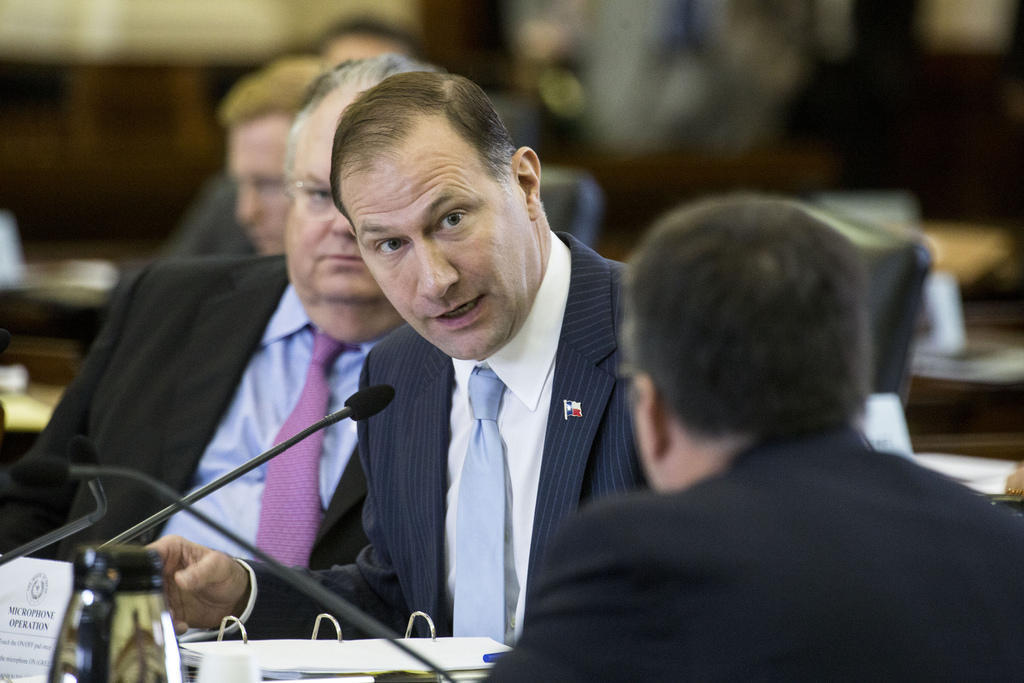Should all Texans be allowed to choose from several utility providers?
A Texas state senator thinks so, as does a longtime energy analyst. State Sen. Charles Schwertner (R-Georgetown) broached the topic during a Senate Business and Commerce Committee hearing.
Schwertner said 90 percent of Texans can shop for the best deal for them from a utility provider. But more than 3 million Texans are forced to be customers of city-owned utilities. Why not let them buy electricity from the company they wish to, as most people in the state have been doing for three decades.
“I asked why people that live w/in a city owned utility don’t get the same free market competition as so many other Texans," Schwertner tweeted on the topic on Feb. 6. "We shouldn’t remove a city’s ability to run a utility but shouldn’t Texans have a choice? I will be looking at the pros & cons before next session.”
Bill Peacock, an energy analyst with 15 years experience in Texas markets, told Texas Business Coalition that residents of towns with municipal utilities shouldn’t be locked into just one option.
“What Sen. Schwertner and others are interested is a common sense proposal to let residents in all Texas cities be able to buy electricity from their favored provider, just like their fellow Texans,” Peacock said. “There is no sense today for cities to be in the business of buying and selling electricity, and especially for them to be able force residents to pay high prices to support investments in boondoggles. If cities can get customers to buy electricity from them without a monopoly, great!”
But he said it is unlikely that would happen in most instances. As with any other business decision, utility customers would like to have options.
“In most of Texas, electricity customers can shop for electricity from among dozens of providers and hundreds of plans. However, some cities, called municipal utilities or munis, don't allow their residents to shop. Instead, they are forced to buy their electricity from the city,” Peacock said. “As you can imagine, a lot often goes wrong with this. For instance, a decade or so ago, the city of Austin decided to contract for electricity generated at a biomass plant, i.e., electricity generated by burning wood, rather than stick with the plentiful supplies of natural gas and coal we have access to in Texas. The results were disastrous.
“The plant was so inefficient that Austin eventually abandoned it after running for only two months or so. But not before it cost Austinites almost $1 billion, which they are still paying for each month,” he said. “Several years ago, Georgetown signed contracts for electricity from wind and solar plants. The amount they contracted for was about twice as much as they needed so the city could claim to be 100 percent renewable. The problem was that the electricity they contracted for cost more than electricity on the rest of the market. So they wound up having to buy expensive electricity and selling at a loss.”
Peacock said to date, Georgetown residents are on the hook for more than $30 million — with about 10 years or more left on the two contracts.
He said San Antonio, which operates the largest "muni" in the state, doesn't have any horror stories, but it is working hard to write one. Its Climate Action and Adaptation Plan, or CAAP, is designed for the city to reach “carbon neutrality” by 2050.
“The costs in doing this, in terms of dollars and reliability, are great and will be born by its residents as well,” Peacock predicted.
After all his years in the Lone Star State, he knows any change will come slowly if at all — but this time feels different.
“This isn't the first time the Texas Legislature has looked into ending the monopoly of certain cities to sell electricity. One bill would have forced Austin into the competitive market. But that was mostly a bargaining chit to get Austin Energy to reduce the price of electricity to the state. Once the state got its deal, it left Austin alone,” Peacock said. “This time, however, I think there is much greater public interest in doing something. I believe a bill will be filed in 2020 to force at least some cities into competition.”
That would provide the best outcome for ratepayers, he said.
“The best thing that policymakers can do is let the market work. Texas has the most competitive electricity market in the world,” Peacock said. “And it has supplied reliable and affordable electricity to Texans for almost 20 years. But renewable subsidies and excessive regulations are making the market less affordable and reliable.
“We should make renewable generators pay for the billions of dollars in costs they are imposing on the market because of subsidies. The PUC should eliminate its $4 billion electricity tax, also known as the Operating Reserve Demand Curve (ORDC),” he said. ”And the Legislature should free all Texans from being forced to buy electricity from cities like Austin, Georgetown and San Antonio.”

